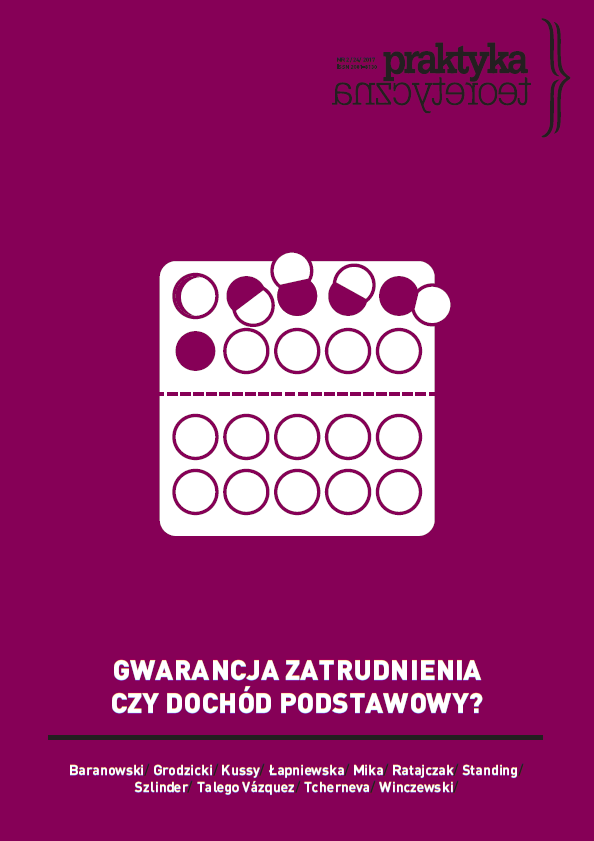„Inny świat jest możliwy”: z gwarantowaną pracą czy z gwarantowanym dochodem? Przypadek Marinaledy
“Another world is possible”: with guaranteed work or guaranteed income? Marinaleda's case
Author(s): Angelina Kussy, Félix Talego VázquezSubject(s): Economic development, Socio-Economic Research
Published by: Uniwersytet Adama Mickiewicza
Keywords: Modern concept of work; critique of labour; Universal Basic Income; anticapitalism; alter-globalization
Summary/Abstract: The article presents the results of two periods of long-term fieldwork in Marinaleda, an ‘anti-capitalist’ Spanish village. It aims to reflect on the genealogy of the modern understanding of the term ‘work’ and to critically approach its philosophical and anthropological assumptions. We want to prove that the proposition of the village, declared by alter-globalists as the practical realisation of the slogan ’another world is possible‘, is based on their striving to reinforce the condition of people as workers and actors in the ‘production’ process. In Marinaleda, both the prevailing discourse and social practices in fact focus on ‘work’; this term however — according to the gathered ethnographic interviews and observations — remains to be understood by the supporters of the ‘alternative’ project in a way that has been shaped in the modern West, and is thus not any different from the definition of ‘work’ in capitalism. We therefore want to address the question of limits of the emancipation projects that do not challenge the concepts of ‘work’ and ‘production’. Furthermore, we believe that adopting the construct of work that started to be formulated in the time of mercantilism and matured in the liberal and subsequently Marxist thought is related to taking a position of subordination. This is why we suggest Universal Basic Income as one of the tools that can weaken the link between the subject and such understood ‘work’ and consequently reinforce its political ties.
Journal: Praktyka teoretyczna
- Issue Year: 2017
- Issue No: 24
- Page Range: 68-100
- Page Count: 33
- Language: Polish

